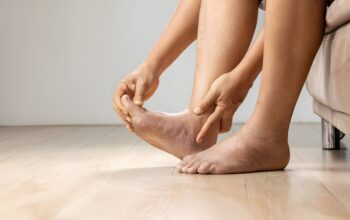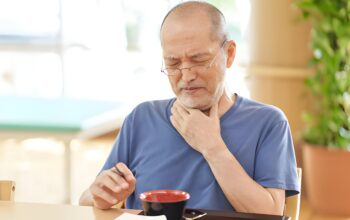Aging is a natural part of life that impacts everything from your heart and eyes to your skin and bones. By understanding the changes that come with age and adopting proactive steps, you can maintain a healthier, more vibrant body. Here’s how to navigate these changes and enhance your well-being as you age.
The Heart’s Extra Workload
As you grow older, your blood vessels and arteries tend to stiffen. This increased rigidity means your heart must work harder to pump blood throughout your body, which can lead to high blood pressure and other cardiovascular issues. Recognizing this change is crucial in taking steps to support your heart health.
Action Steps:
- Stay Active: Regular physical activity is vital. Engage in exercises such as walking, running, swimming, or even gardening. The goal is to incorporate moderate exercise into your daily routine, which can help maintain a healthy weight and keep your blood pressure in check.
- Eat Wisely: A diet rich in fruits, vegetables, and whole grains is beneficial for your heart. These foods provide essential nutrients that support cardiovascular health.
- Manage Stress and Sleep Well: Stress management techniques like meditation, yoga, or deep breathing exercises can reduce stress levels. Additionally, getting 7-8 hours of quality sleep each night is essential for the repair and healing of your heart and blood vessels.
Changes in Skin
As you age, your skin undergoes several changes. It becomes drier and less supple due to a decrease in natural oil production. You might also sweat less and lose some of the fatty tissue just below the skin’s surface, making it thinner. Wrinkles, age spots, and skin tags become more common.
Action Steps:
- Warm Water Baths: Hot water can strip your skin of its natural oils, so opt for warm baths and showers to keep your skin hydrated.
- Sun Protection: Protect your skin from harmful UV rays by wearing sunscreen with at least SPF 30, along with protective clothing when outdoors. This can prevent sunburn and reduce the risk of skin cancer.
- Quit Smoking: Smoking accelerates the aging process of your skin, leading to more wrinkles and other skin issues. Quitting smoking can improve your skin’s appearance and overall health.
Vision and Hearing Challenges
Aging can affect your vision and hearing. You might find it harder to focus on objects up close, need reading glasses for the first time, or notice increased glare. Adapting to changes in light can also become difficult. Hearing loss, particularly in noisy environments or at high frequencies, is common as well.
Action Steps:
- Regular Checkups: Schedule regular eye and hearing exams. Early detection of changes can help manage and treat conditions effectively.
- Protect Your Eyes and Ears: Wear sunglasses that block 100% of UV rays to protect your eyes when outdoors. Use earplugs in loud environments to prevent hearing damage.
Dental Health Changes
Your oral health can change significantly as you age. Gums may recede from the teeth, and certain medications can cause dry mouth, which increases the risk of tooth decay and infections.
Action Steps:
- Oral Hygiene: Brush your teeth at least twice a day and floss daily to remove food particles and plaque between teeth. Good oral hygiene is the best defense against gum disease and tooth loss.
- Dental Visits: Regular dental checkups and cleanings are crucial. Your dentist can spot early signs of problems and provide necessary treatments to maintain your oral health.
Bone Density Decline
As early as your 40s and 50s, bones start to lose density and become more brittle, increasing the risk of fractures. You might also notice a reduction in height due to the shrinking of spinal disks, and your joints could become stiffer as cartilage wears away, potentially leading to arthritis.
Action Steps:
- Calcium and Vitamin D: Ensure you get enough calcium from dairy products, almonds, broccoli, and kale. Vitamin D, which is vital for calcium absorption and bone strength, can be obtained from sunlight exposure, fish like tuna and sardines, egg yolks, and fortified foods such as milk and cereals. Supplements might be necessary, so consult your doctor.
- Exercise: Weight-bearing exercises like walking, dancing, or lifting weights can help maintain bone density and strength.
Bladder and Bowel Changes
Aging can lead to urinary incontinence, characterized by a loss of bladder control, and constipation, influenced by conditions like diabetes and medications for various health issues.
Action Steps:
- Medical Consultation: If you experience frequent urination or incontinence, discuss it with your doctor. Most symptoms can be managed or treated effectively.
- Diet and Exercise: Avoid irritants like caffeine, alcohol, and acidic foods. Practice Kegel exercises to strengthen pelvic floor muscles, which can improve bladder control. For bowel health, eat high-fiber foods like fruits, vegetables, and whole grains, stay hydrated, and engage in regular physical activity to stimulate bowel movements.
Maintaining Mobility and Strength
With age, muscle mass tends to decrease, leading to weakness and reduced activity levels. This decline can impact your overall mobility and strength.
Action Steps:
- Regular Exercise: Incorporate moderate exercise into your daily routine, such as brisk walking, swimming, or light weightlifting. Exercise helps maintain muscle strength and function, improving mobility and balance.
- Healthy Diet: Consume lean proteins, fruits, and vegetables, while limiting sugar and high-fat foods. Eating smaller portions can also help manage weight, as caloric needs often decrease with age.
Sexual Health Adjustments
Menopause and aging can affect sexual health. For women, vaginal tissues become drier, thinner, and less elastic, making sex less pleasurable. For men, erectile difficulties may arise due to health conditions or side effects of treatments.
Action Steps:
- Consult Your Doctor: Discuss any changes or concerns with your doctor. There are medications and treatments available to address physical symptoms and enhance sexual desire.
Aging is an inevitable process, but with informed choices and lifestyle adjustments, you can enjoy a healthier, more fulfilling life as you grow older. Embrace these changes and take proactive steps to ensure your well-being and vitality.







